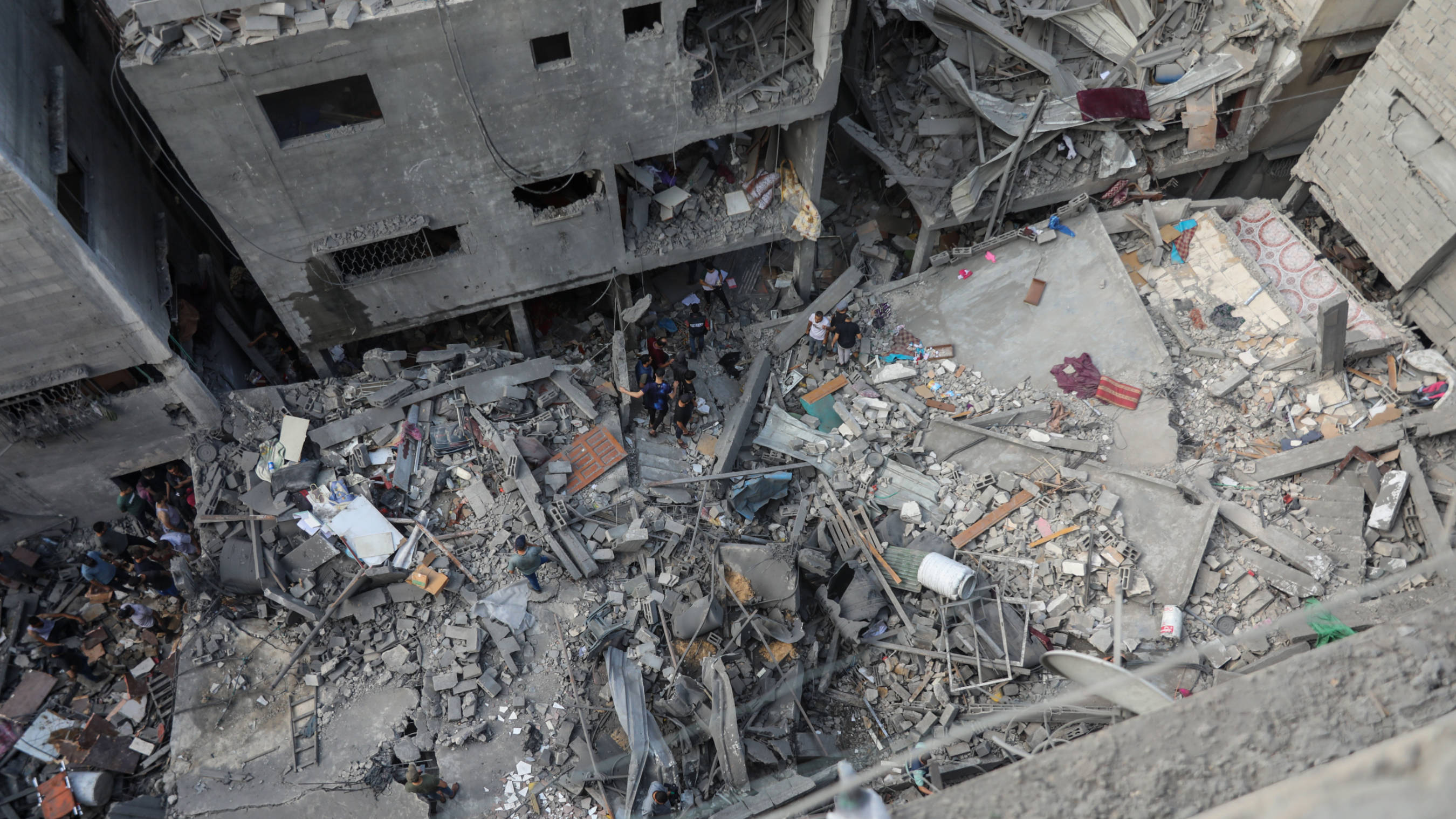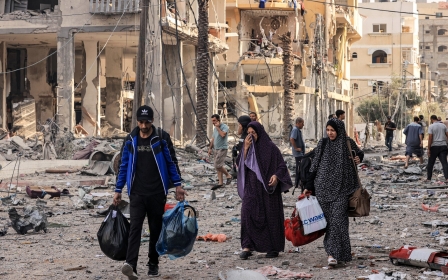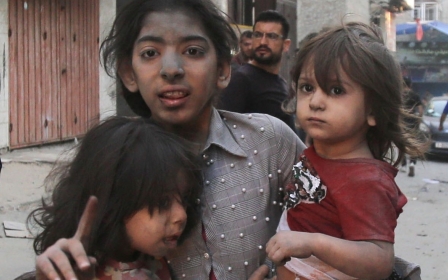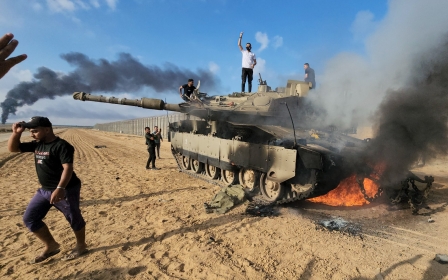Israel-Palestine war: 250 killed in Gaza's deadliest morning
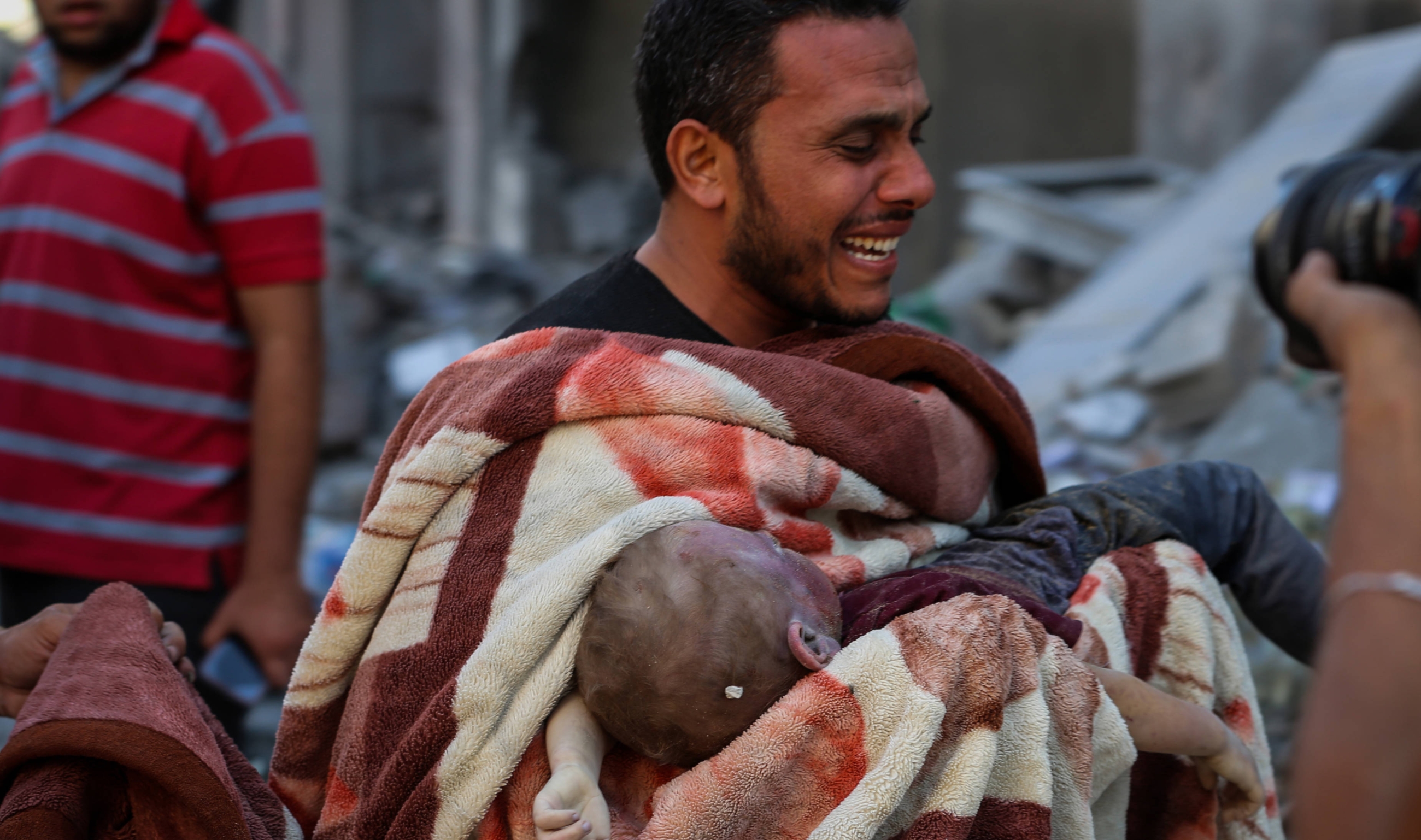
Residents of Gaza’s third-largest refugee camp woke up in the early hours of Thursday to find death and destruction at their doorstep after Israel carried out its deadliest attack on the besieged enclave in six days.
Israeli air strikes killed at least 250 people on Thursday morning alone, including 44 members of the same family in Jabalia. The Shehab family included 16 children, aged between two and 14 years old.
The Israeli air strikes have so far killed at least 400 Palestinian children this week. They are among at least 1354 people killed in the daily bombardment of civilian buildings since Saturday.
“We woke up to the sound of bombs raining down on us, we went outside and when the smoke cleared we found body parts strewn all over the streets,” Ahmed Nahhal, a resident of al-Shati camp, told Middle East Eye.
Thursday’s massacre took place in two areas, Jabalia, some four kilometres north of Gaza City, and al-Shati camp, on the eastern Mediterranean coast. The death toll is expected to rise as scores of bodies are still trapped under rubble, with no means to retrieve them.
New MEE newsletter: Jerusalem Dispatch
Sign up to get the latest insights and analysis on Israel-Palestine, alongside Turkey Unpacked and other MEE newsletters
Al-Shati camp, built on an area of only 0.52 square kilometres, is one of the most densely populated areas in the world. Many families across Gaza have fled Israel's relentless bombing campaign to the camp, already brimming with a population of 90,713 people.
"People have come to us from all over Gaza to hide with us in the camp, only to die here," Nahhal said, his voice breaking.
The aerial attacks began after the Palestinian group Hamas launched a surprise multi-front assault on Israeli communities on Saturday, firing thousands of rockets and sending fighters into Israel across the land, air, and sea. The assault has killed more than 1,300 Israelis, and around 130 people have been taken captive back to Gaza.
Follow our live blog for all the latest on the Israel-Palestine war
Nahhal said residents had not received notices from the Israeli army to evacuate the area before the attack.
"People were killed in their homes. They were sleeping. They were women and children, not fighters. I don’t need to say anything, just look around you, the scene tells you everything," Nahhal said.
He added that they have had no way of communicating with first responders to come with their equipment to pull people from under the rubble. Israel has cut off electricity and fuel supplies to Gaza, and bombed its two primary telecommunication companies.
"As I speak to you, there are bodies buried under us right now that we haven't been able to reach due to the magnitude of the destruction," Nahhal said, adding that moments ago they pulled three children out of the debris.
"We have been left to our fate. No one in the world is making an effort to stop Israel's campaign. We are talking now, but we are future martyrs."
Masri, another resident of the camp who only gave his last name, said that at least 10 multi-storey buildings were flattened in the attack on al-Shati.
He added that each family was hosting five to six family who had been displaced from other areas in Gaza.
"We pulled six people from under the rubble over there. I swear this is unimaginable," Masri said, shouting in frustration at the lack of Arab and international intervention to stop Israel's bombing campaign.
"Children are being blown apart. What have they done to deserve this? Why are we having to pull the dead bodies of children from under the wreckage?"
Middle East Eye delivers independent and unrivalled coverage and analysis of the Middle East, North Africa and beyond. To learn more about republishing this content and the associated fees, please fill out this form. More about MEE can be found here.


